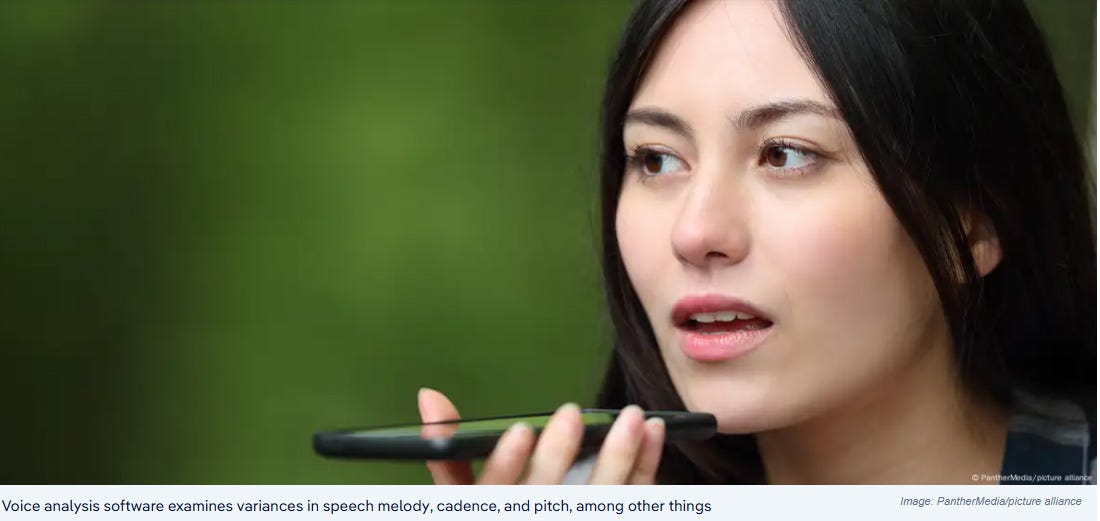Type 2 Diabetes Can be Detected Via Voice Analysis, Experts say
Researchers found that as blood sugar levels rise, so does the frequency of one's person voice. Mental illness, depression, post-traumatic stress disorder and heart disease can also be detected.
By Sean Miller
September 7, 2024
A recent study demonstrated that fundamental frequencies of one’s voice are altered slightly by type 2 diabetes, allowing novel technology to detect the disease. Even the specifics of the individual’s disease can be deduced through listening to their speech.
“This study provides foundational knowledge and insights for a better understanding of glucose-driven changes in voice signals. We assessed the modulation of fundamental frequency in relation to glucose levels on an individual basis and determined there was a small significant positive relationship between glucose levels and voice fundamental frequency,” the study said in the ‘Discussion’ section. “Furthermore, the sampling regime used to collect the voice data was able to recreate the entire CGM glucose distribution of ND, PD, and T2D individuals, allowing for an assessment of overall glucose behavior in a sampled dataset. Overall, the proposed sampling regime was successful in recreating the glucose distributions for ND, PD, T2D populations.”
The researchers explained why such a phenomena exists.
“Glucose levels in the body have been hypothesized to affect voice characteristics. One of the primary justifications for voice changes are due to Hooke’s law, in which a variation in the tension, mass, or length of the vocal folds, mediated by the body’s glucose levels, results in an alteration in their vibrational frequency,” the study said in the ‘Abstract’ section.
The researchers explained the mechanism of the change to the voice as well.
“Our findings indicate alterations in voice signals associated with the changes of blood glucose levels. We observed a significant positive relationship between continuous glucose levels and mean fundamental frequency. For all participant diabetic groups (ND, PD, T2D), fundamental frequency increased when glucose levels increased,” the study said in the ‘Discussion’ section.
As to the vocal analysis, the researchers utilized computer programs which provided metrics on two main parameters.
“From the speech segments, we chose to assess two features: the mean fundamental frequency (F0) and the standard deviation of the fundamental frequency (vF0). Averaging the fundamental frequencies across these phrases provides a broader insight into habitual fundamental frequency, rather than attempting to extract F0 from a single phoneme,” the study said in the ‘Methods’ section. “The F0 and vF0 from each voice recording was extracted using Parselmouth (Version 0.4.3), a publicly available Python integration for Praat (Python Version 3.10.8).”
Interestingly, this is not the first piece of research on the blood-sugar-to-voice-frequency phenomenon.
A prior study from 2023 documented similar findings as well.
How Artificial Intelligence (AI) can detect diabetes with a 10-second voice sample
Mental illness, depression, post-traumatic stress disorder and heart disease can also be detected using voice analysis.
Artificial intelligence can analyze speech patterns to detect type 2 diabetes with astonishing accuracy. The method could prove to be a useful diagnostic tool. But it comes with a warning label.
“Overall, vocal changes occur in individuals with type 2 diabetes mellitus (T2DM) compared with those without T2DM. Voice analysis shows potential as a prescreening or monitoring tool for T2DM, particularly when combined with other risk factors associated with the condition,” the 2023 study said in the ‘Conclusion’ section.
While not eating yourself into disease is safer and more effective than drugs, it also doesn't help the pharmaceutical industry's profitability or stock price.
Intermittent fasting ‘may serve as an effective initial lifestyle intervention‘ for patients with Type 2 diabetes—potentially eliminating antidiabetic drugs.
READ MORE:
Diabetes Better Treated with Intermittent Fasting Than Drugs — Study
While managing mealtimes is more effective and comes without risk of side effects, it also doesn’t turn a profit for big pharmaceutical companies.
If a diabetic overcomes their disease, they also no longer benefit from the pharmaceutical industry.







